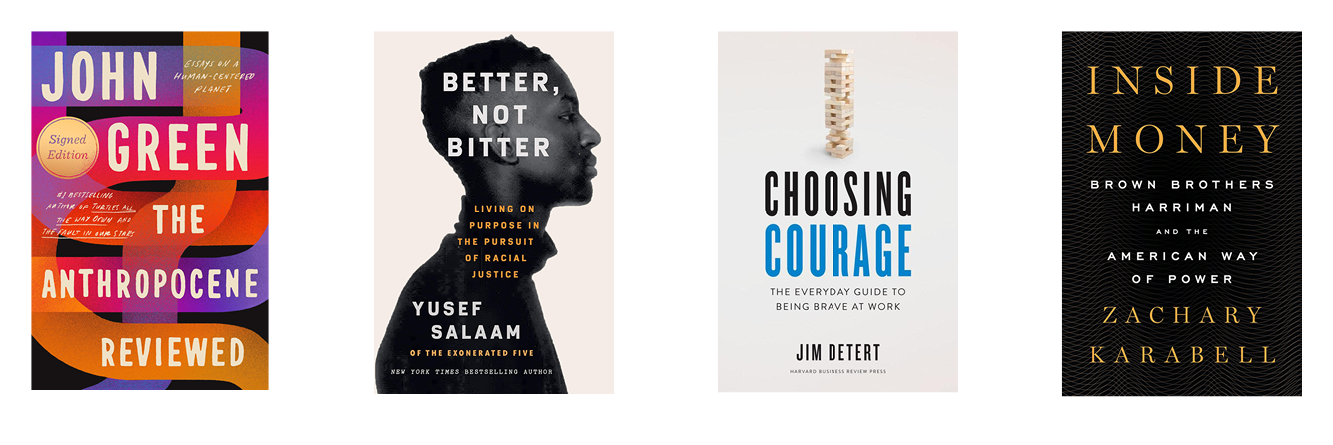-

November: National Native American Heritage Month Booklist
A call for more stories about and by Indigenous Americans.
-

Banned Books Week Booklist
Across the country, many of the books banned or challenged center BIPOC and LGBTIA+ themes and characters. Reading can be resistance to censorship and support of diverse perspectives.
-
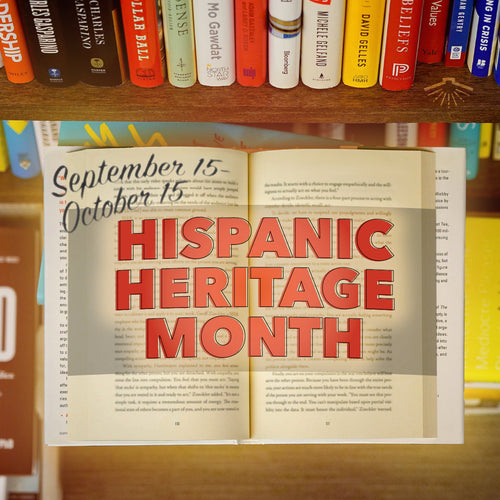
September: Hispanic Heritage Month Booklist
Consider new books and new perspectives in our 2023 Hispanic Heritage Month booklist.
-

June: LGBTQIA+ Pride Month Booklist
LGBTQIA+ Pride Month is as much about celebrating and making a very large community visible as it is about protecting human rights. The books we’re highlighting here do both.
-
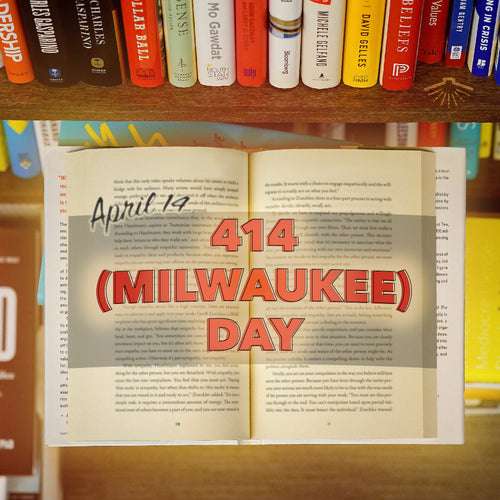
April 14: Milwaukee Day Booklist
From the 414 area code, on 4/14, we've created a booklist to celebrate Milwaukee-based and Milwaukee-raised authors on Milwaukee Day.
-

April: Earth Month Booklist
A booklist to celebrate new and classic reads that inform on and celebrate our planet.
-

March: Women's History Month Booklist
A booklist to celebrate woman and women.
-

February: Black History Month Booklist
A booklist to celebrate new and classic reads that reflect the great variety of Black perspectives and experiences.
-
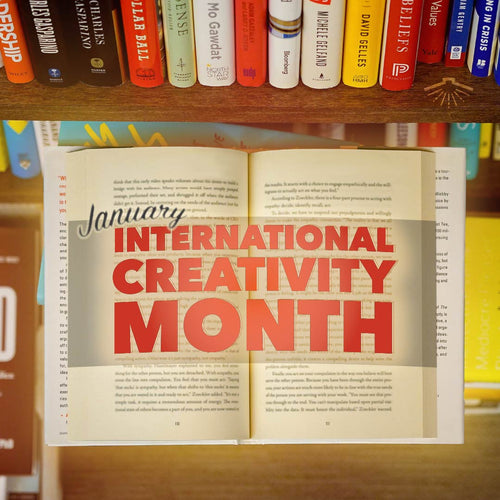
January: International Creativity Month Booklist
I have no doubt there’s a book out there to inspire creativity in any area of your life, whether you’re a freelance artist, nine-to-fiver, daydreamer, or anything in between.
-

Native American/Indigenous Heritage Month Booklist
Celebrate Native American/Indigenous Heritage Month with this list of recommended reading. We see you, and we read you.
-

Hispanic Heritage Month Booklist
Celebrate Hispanic Heritage Month with this list of recommended authors and books. We see you, and we read you.
-

National Wellness Month Booklist
August is National Wellness Month, and we've got a list of books to support you year-round. We see you and we read you.
-

Pride Month Booklist
Through both joyous celebrations and more difficult work and learning, we can strive to become better allies or LGBTQIA+ community members. We see you, and we read you.
-

Disability Book Week: April 23-29
We see you, and we read you. Here are five reading recommendations focused on the disabled community of authors and books.
-
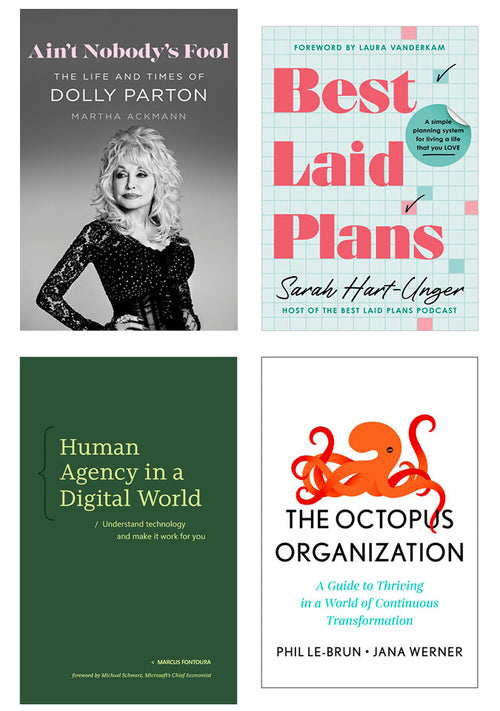
New Book Releases | December 16
In our last new releases post of the year, we highlight four books coming out before 2026 arrives.
-
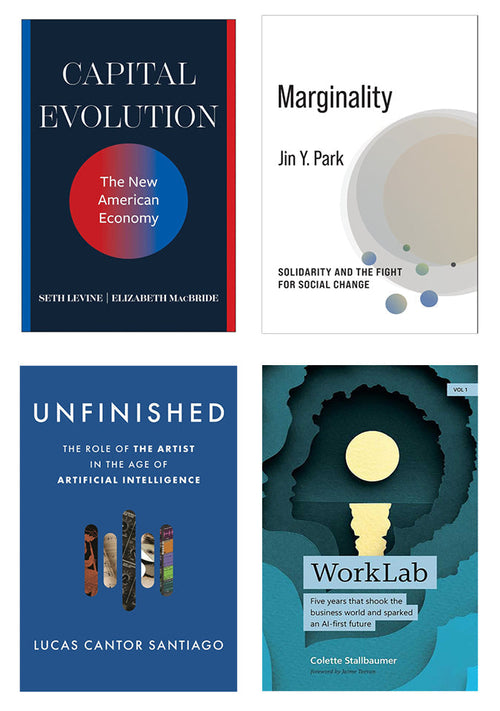
New Book Releases | December 9
With two books about how new technologies are changing the nature of work in two very different fields, and two more about the nature of our economic system and how those existing on its margins can drive positive change within it, this week's books offer guidance on how to navigate our complex and contentious era proactively and constructively as the new year approaches.
-
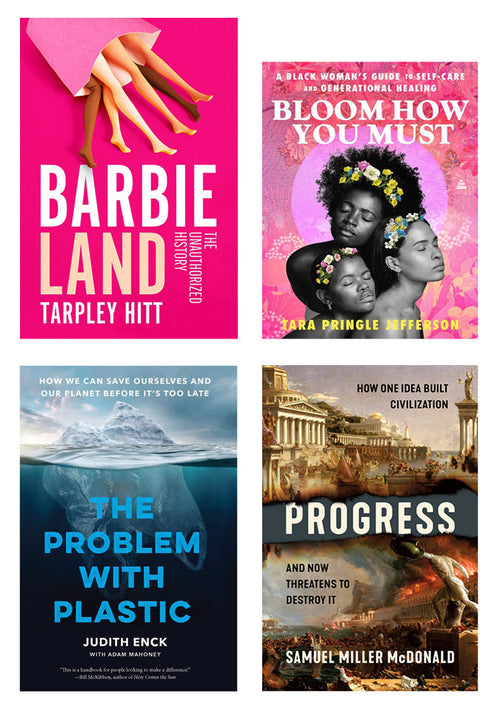
New Book Releases | December 2
A plastic doll, an increasingly plastic planet, the definition of progress, and the importance of self-care—this week's books cover a lot of ground (in some ways literally).
-
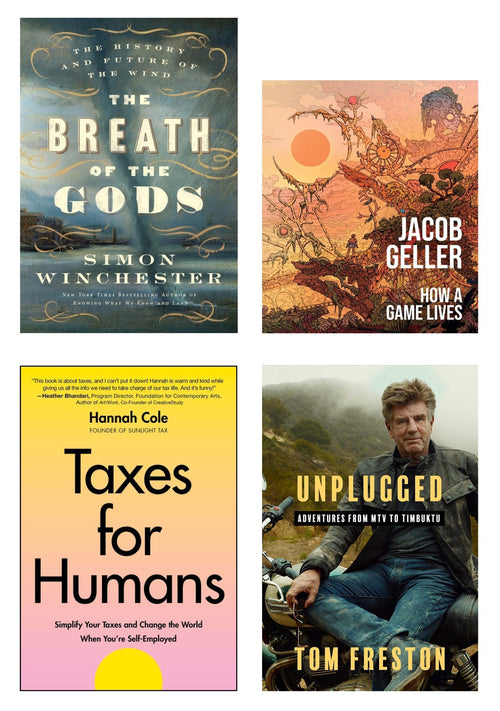
New Book Releases | November 18
A new book from Simon Winchester, a memoir from the cofounder of MTV, and books from two authors who have built large online followings based on the two new certainties in life (at least in the lives of parents with tween children): taxes and video games.
-
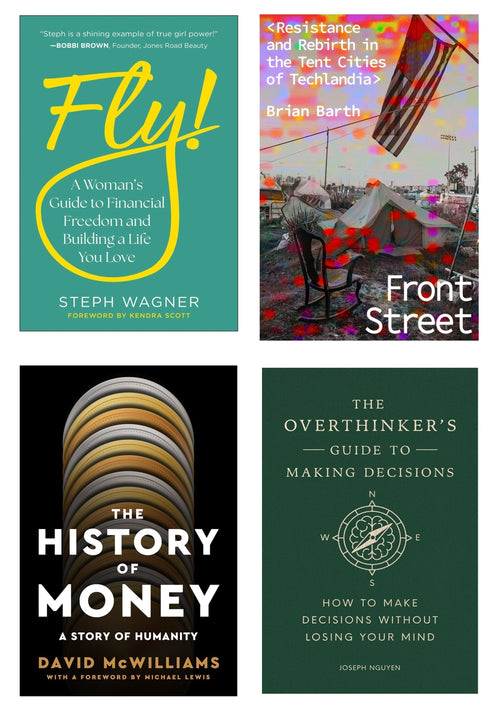
New Book Releases | November 11
Trying to make sense of what is happening in the world, how we got here, and what part you have to play in it all? The best place to seek answers to those questions is in a book, and there are some great releases coming out this week.
-
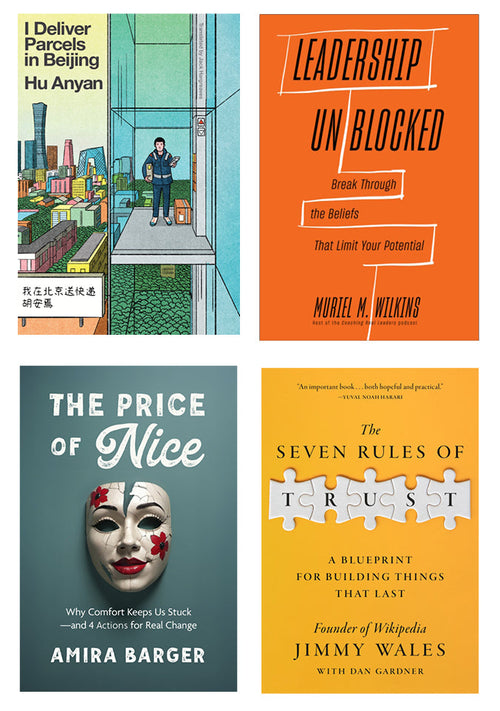
New Book Releases | October 28th
From the precarity of gig work and the challenges of leadership to what niceness costs you (and all of us) and building the biggest collection of knowledge in the world, this week's best new releases cover a lot of ground.
-
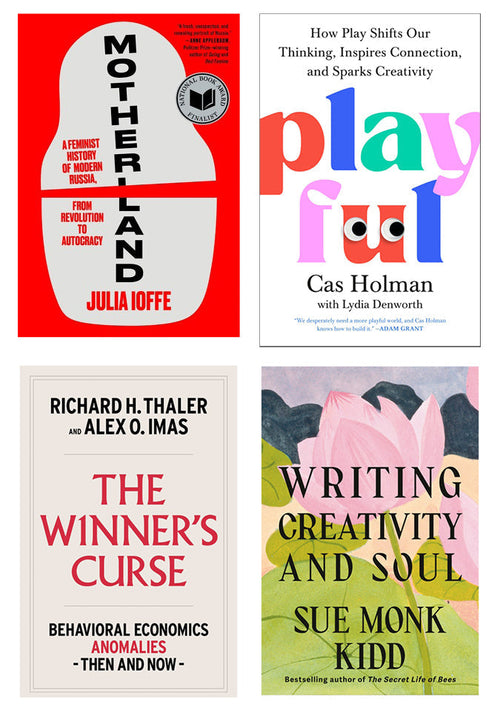
New Book Releases | October 21st
New books from Julia Ioffe, Cas Holman, Richard Thaler and Alex Imas, and Sue Monk Kidd are hitting bookshop shelves and online stores this week.
-
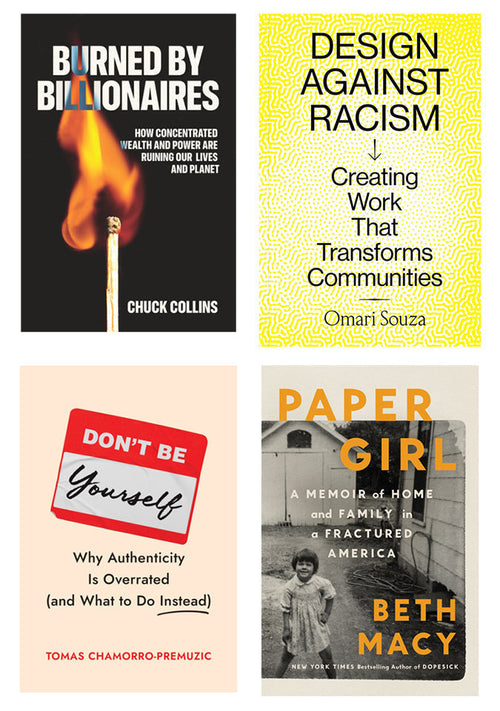
New Book Releases | October 7th
New nonfiction books by Beth Macy, Tomas Chamorro-Premuzic, Omari Souza, and Chuck Collins are out this week.
-
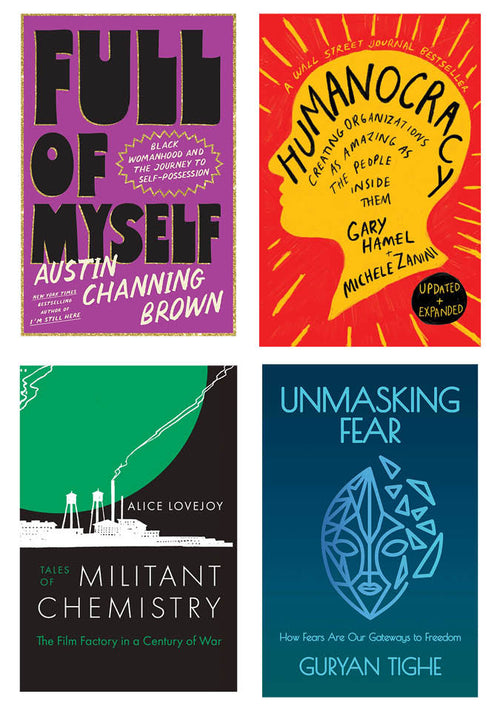
New Book Releases for the Week of August 26
Featuring new releases by Austin Channing Brown; Gary Hamel and Michele Zanini; Alice Lovejoy; and Guryan Tighe.
-
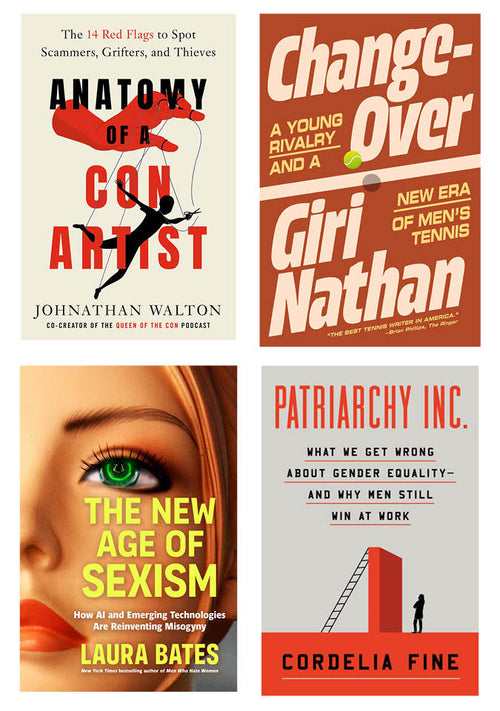
New Book Releases for the Week of August 19
Featuring new releases by Johnathan Walton, Giri Nathan, Laura Bates, and Cordelia Fine.
-
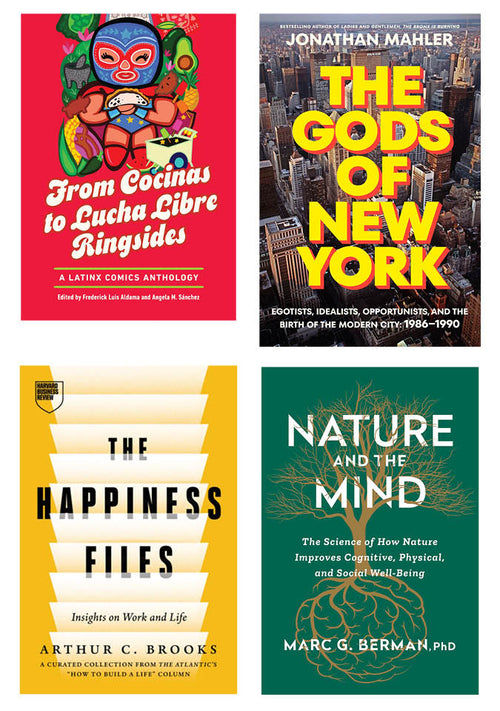
New Book Releases for the Week of August 12
Featuring new releases from Frederick Luis Aldama and Angela M. Sánchez; Jonathan Mahler; Arthur C. Brooks; and Marc Berman.
-
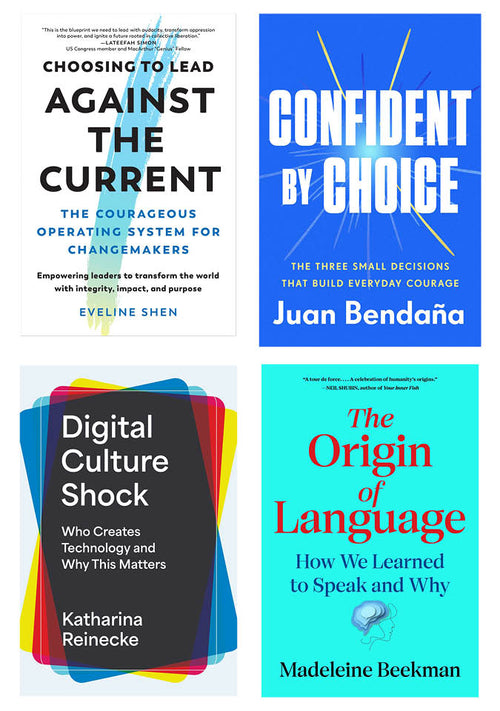
New Book Releases for the Week of August 5
Featuring new releases from Eveline Shen, Juan Bendaña, Katharina Reinecke, and Madeleine Beekman.
-
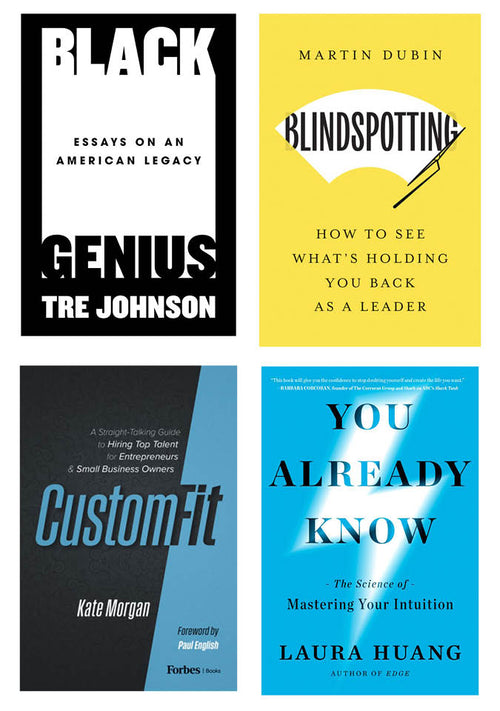
New Book Releases for the Week of July 29, 2025
Featuring new releases from Tre Johnson, Martin Dubin, Kate Morgan, and Laura Huang.
-
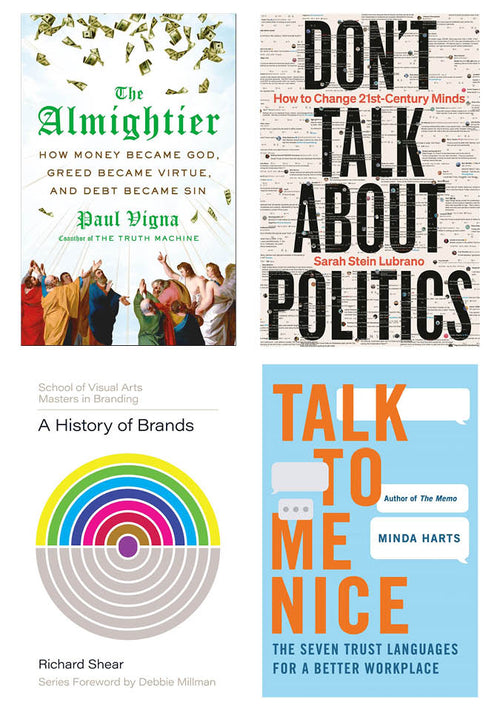
New Book Releases for the Week of July 22, 2025
Featuring new releases from Paul Vigna, Sarah Stein Lubrano, Richard Shear, and Minda Harts.
-

New Book Releases for the Week of July 15, 2025
Featuring new releases from Adam Aleksic, Wendy Johnson, Jeffrey Hull and Margaret Moore, and Katherine Larson
-
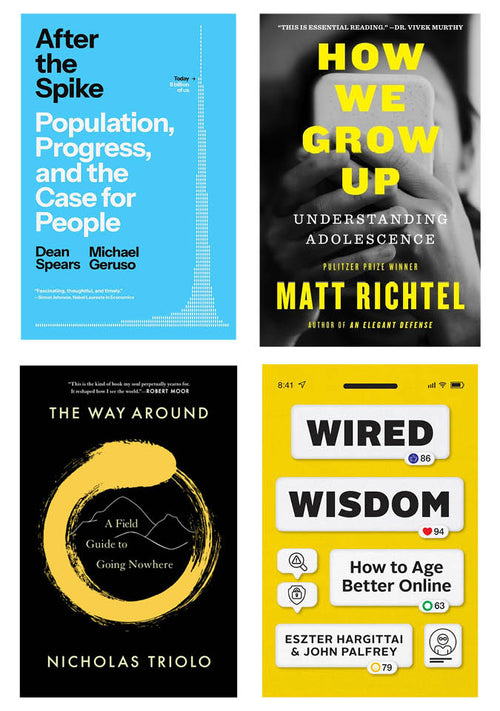
New Book Releases for the Week of July 8, 2025
Featuring new releases from Dean Spears and Michael Geruso; Matt Richtel; Nicholas Triolo; and Eszter Hargittai and John Palfrey.
-
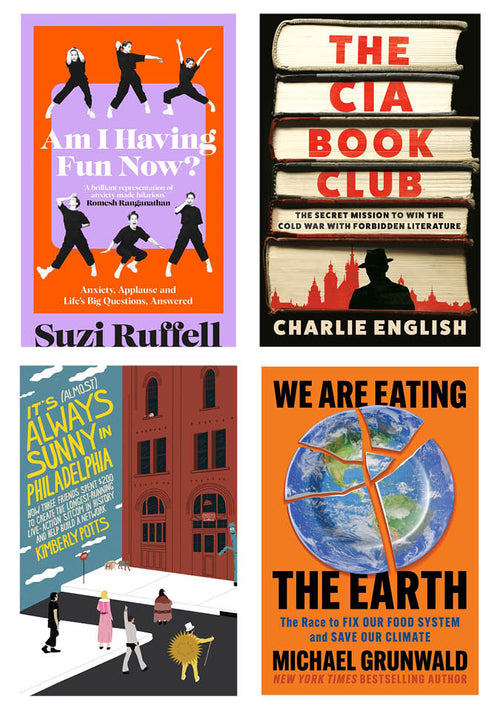
New Book Releases for the Week of July 1, 2025
Featuring new releases by Suzi Ruffell, Charlie English, Kimberly Potts, and Michael Grunwald.
-
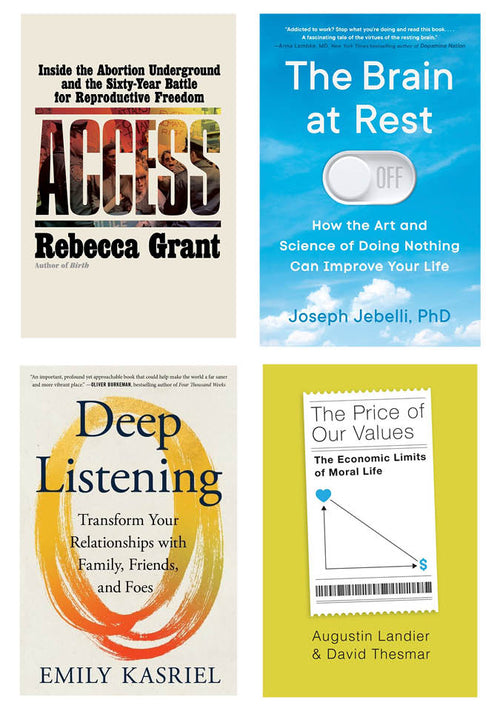
New Book Releases for the Week of June 24, 2025
Featuring new book releases from Rebecca Grant, Joseph Jebelli, Emily Kasriel, and Augustin Landier and David Thesmar.
-
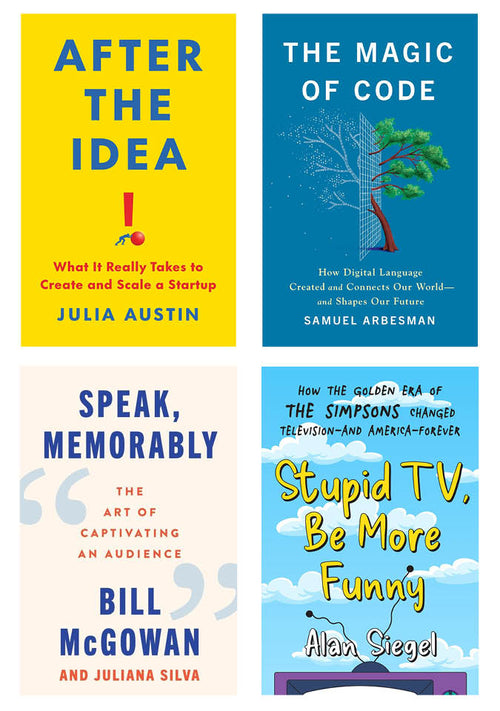
New Book Releases for the Week of June 10, 2025
Featuring new book releases from Julia Austin, Samuel Arbesman, Bill McGowan and Juliana SIlva, and Alan Siegel
-
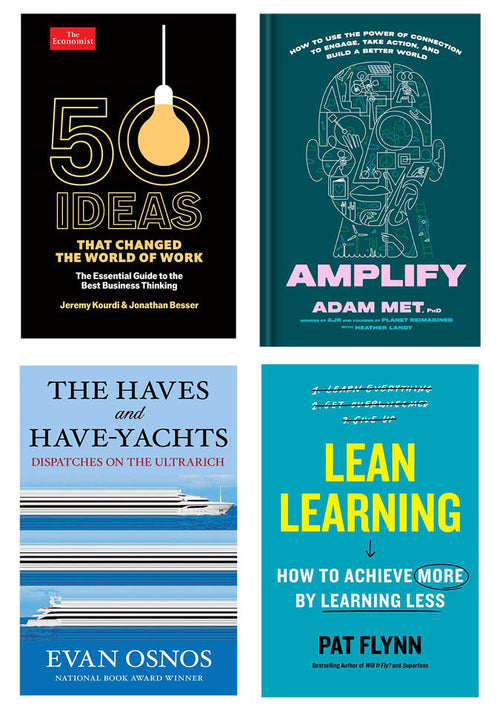
New Book Releases for the Week of June 3, 2025
Featuring new book releases from Jeremy Kourdi and Jonathan Besser; Adam Met with Heather Landy; Evan Osnos; and Pat Flynn.
-
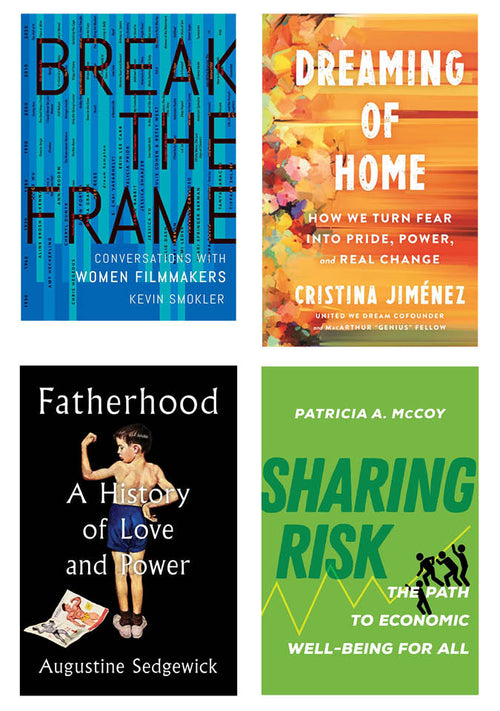
New Book Releases for the Week of May 27, 2025
Featuring new book releases from Kevin Smokler, Cristina Jiménez, Augustine Sedgewick, Patricia A. McCoy.
-

New Book Releases for the Week of May 20, 2025
Featuring new book releases from Anna Malaika Tubbs, Robert Macfarlane, Greta Morgan, and Anna Mitchael.
-
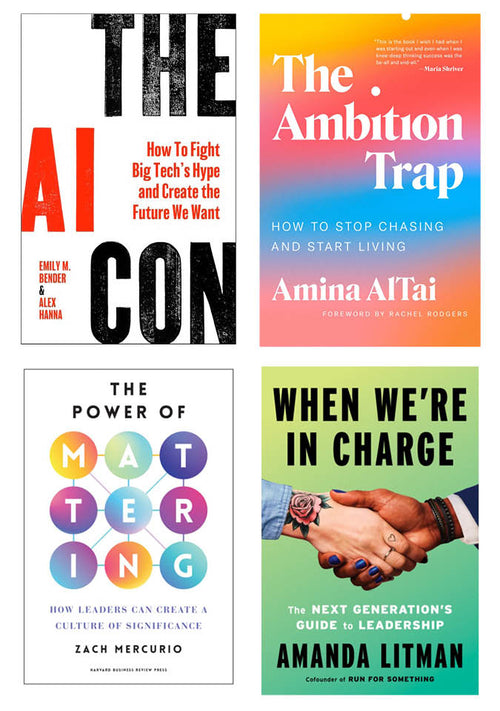
New Book Releases for the Week of May 13, 2025
Featuring new book releases from Emily M. Bender and Alex Hanna, Amina AlTai, Zach Mercurio, and Amanda Litman.
-
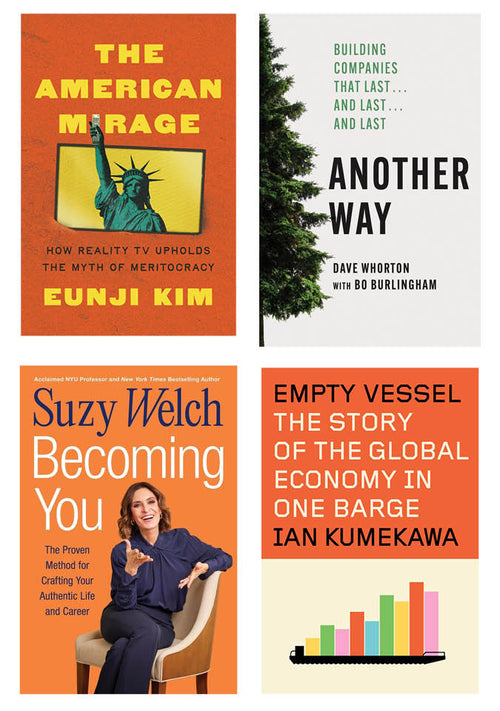
New Book Releases for the Week of May 6, 2025
Featuring new book releases from Eunji Kim, Dave Whorton, Suzy Welch, and Ian Kumekawa.
-
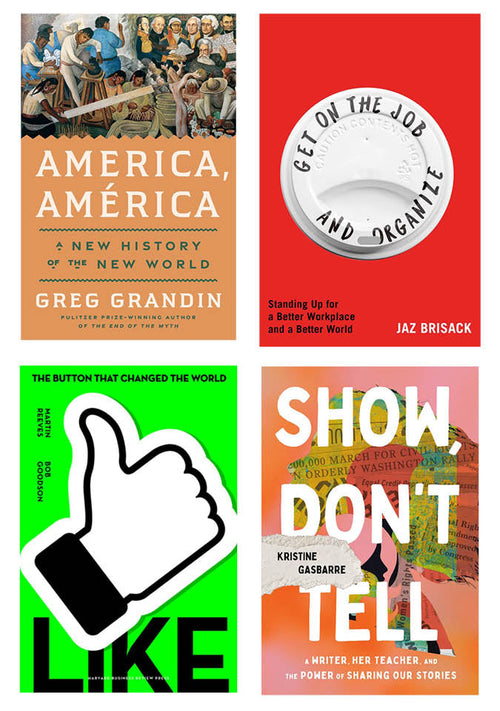
New Book Releases for the Week of April 29, 2025
Featuring new book releases from Greg Grandin, Jaz Brisack, Martin Reeves and Bob Goodson, and Kristine Gasbarre
-
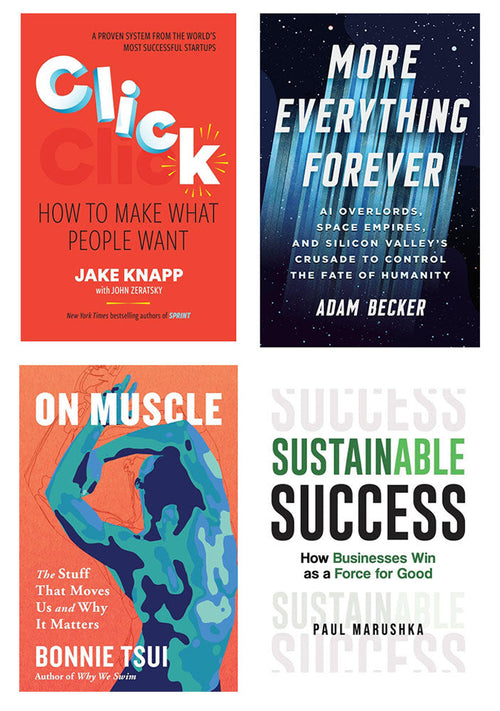
New Book Releases for the Week of April 22, 2025
Featuring new book releases from Jake Knapp, Adam Becker, Bonnie Tsui, and Paul Marushka.
-
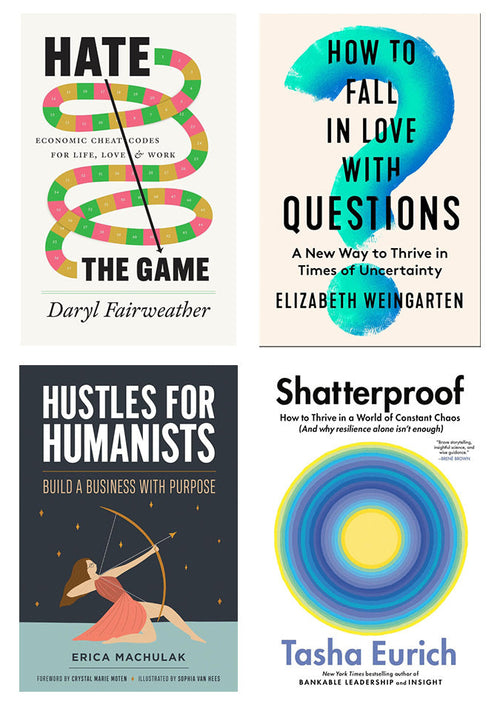
New Book Releases for the Week of April 15, 2025
Featuring new book releases from Daryl Fairweather, Elizabeth Weingarten, Erica Machulak, and Tasha Eurich
-
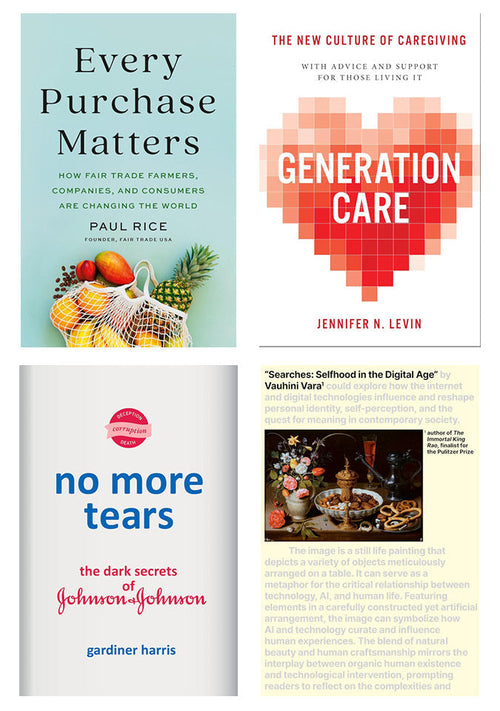
New Book Releases for the Week of April 8, 2025
Featuring new book releases from Paul Rice, Jennifer N. Levin, Gardiner Harris, and Vauhini Vara
-
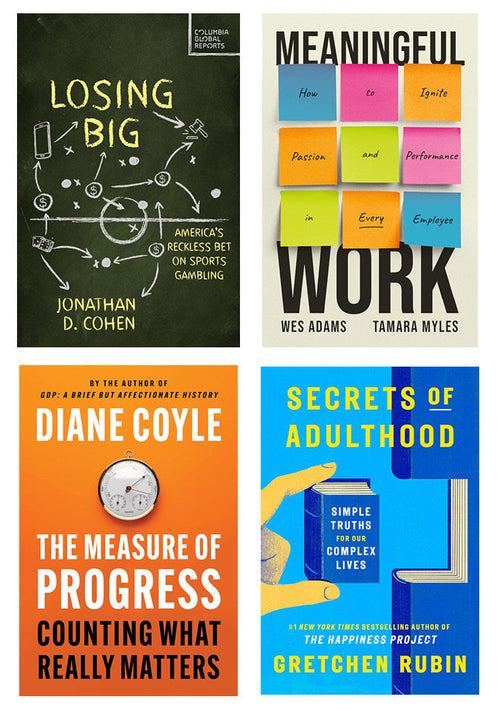
New Book Releases for the Week of April 1, 2025
Featuring new book releases from Jonathan D. Cohen, Wes Adams and Tamara Myles, Diane Coyle, and Gretchen Rubin.
-
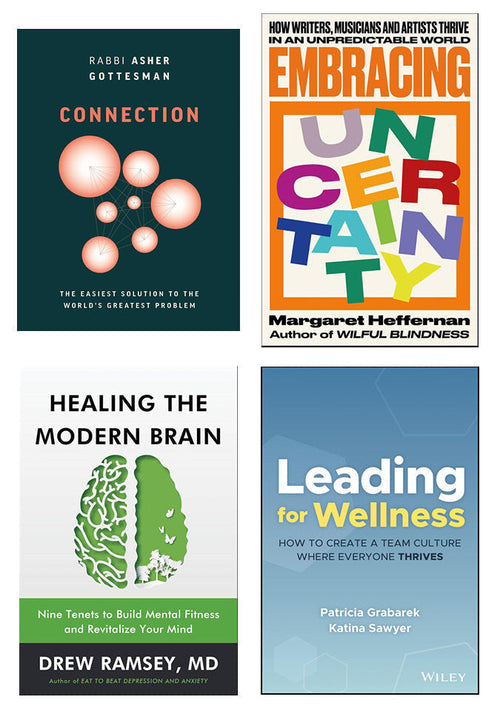
New Book Releases for the Week of March 25, 2025
Featuring new book releases from Rabbi Asher Gottesman, Margaret Heffernan, Dr. Drew Ramsey, and Patricia Grabarek and Katina Sawyer.
-
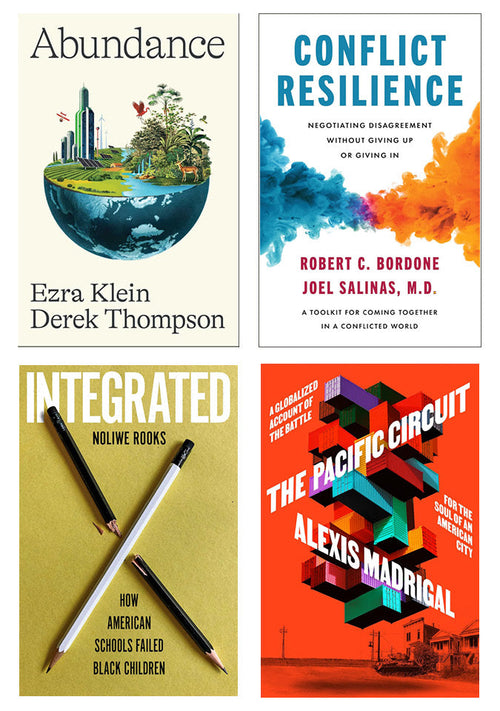
New Book Releases for the Week of March 18, 2025
Featuring new book releases from Ezra Klein and Derek Thompson, Robert C. Bordone and Joel Salinas, M.D., Noliwe Rooks, and Alexis Madrigal.
-
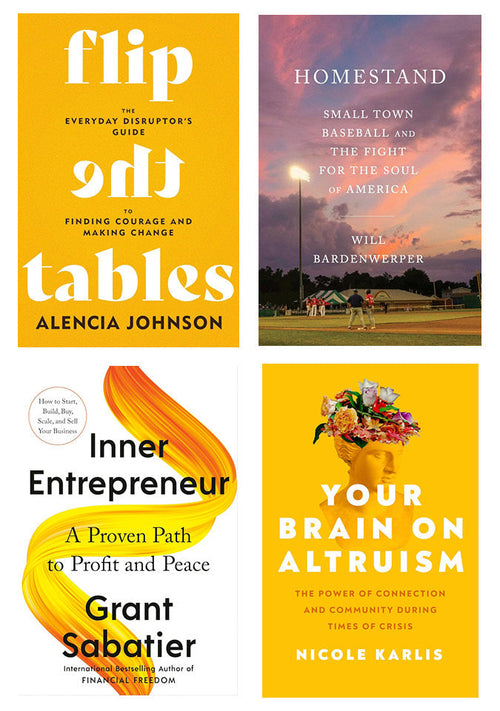
New Book Releases for the Week of March 11, 2025
Featuring new book releases from Alencia Johnson, Will Bardenwerper, Grant Sabatier, and Nicole Karlis.
-
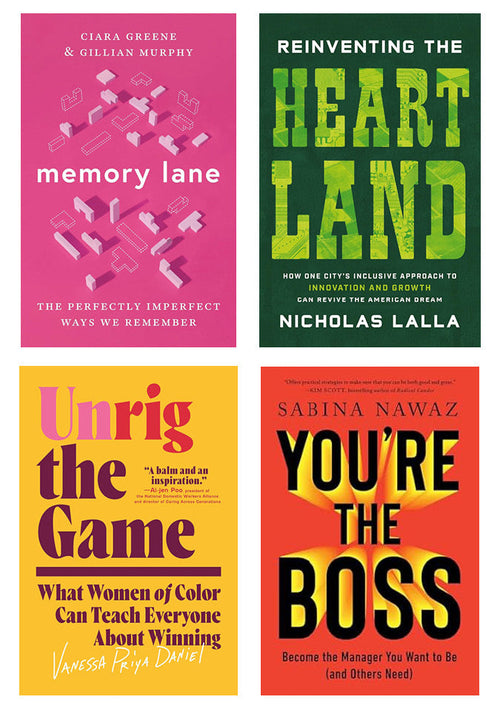
New Book Releases for the Week of March 4, 2025
Featuring new book releases from Ciara Greene and Gillian Murphy, Nicholas Lalla, Vanessa Priya Daniel, and Sabina Nawaz.
-
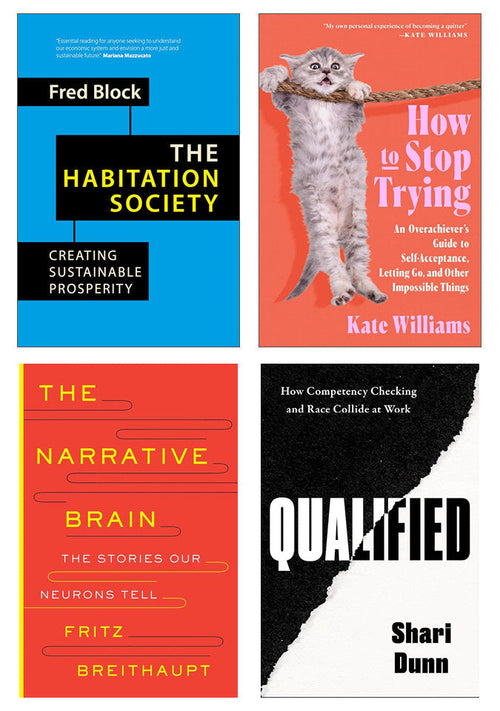
New Book Releases for the Week of February 25, 2025
Featuring new book releases from Fred Block, Kate Williams, Fritz Breithaupt, and Shari Dunn.
-
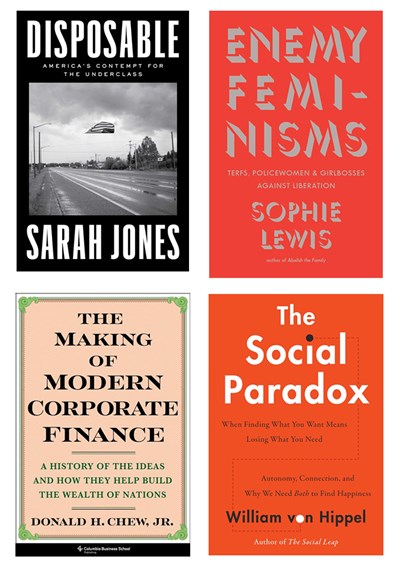
New Book Releases for the Week of February 18, 2025
Featuring new book releases from Sarah Jones, Sophie Lewis, Donald H. Chew, Jr., and William von Hippel.
-
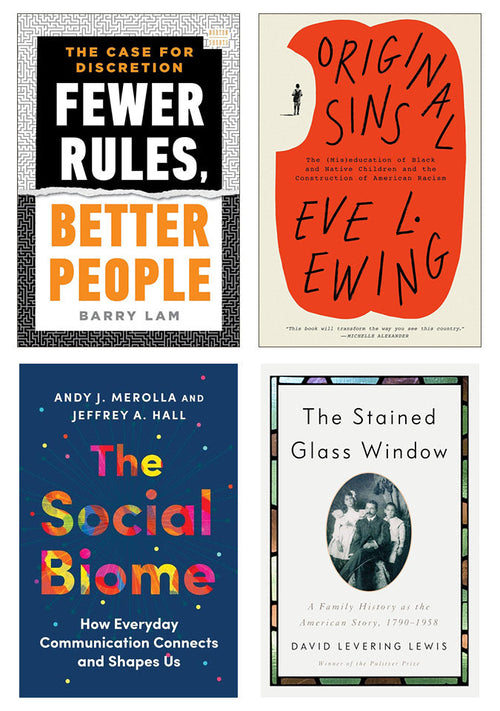
New Book Releases for the Week of February 11, 2025
Featuring new book releases from Barry Lam, Eve L. Ewing, Andy J. Merolla and Jeffrey A. Hall, and David Levering Lewis.
-
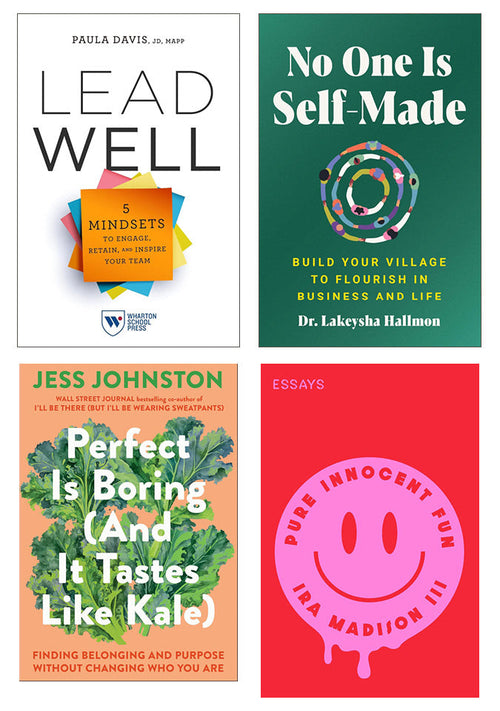
New Book Releases for the Week of February 4, 2025
Featuring new book releases from Paula Davis, Dr. Lakeysha Hallmon, Jess Johnston, and Ira Madison, III
-
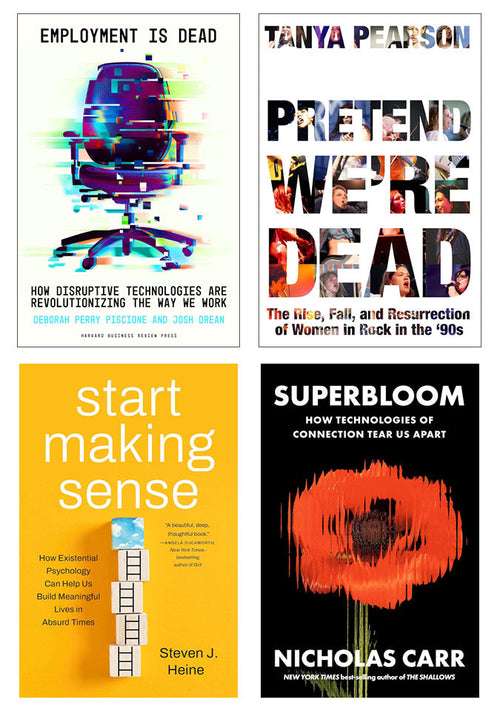
New Book Releases for the Week of January 28, 2025
Featuring new book releases from Deborah Perry Piscione and Josh Drean, Tanya Pearson, Steven J. Heine, and Nicholas Carr.
-
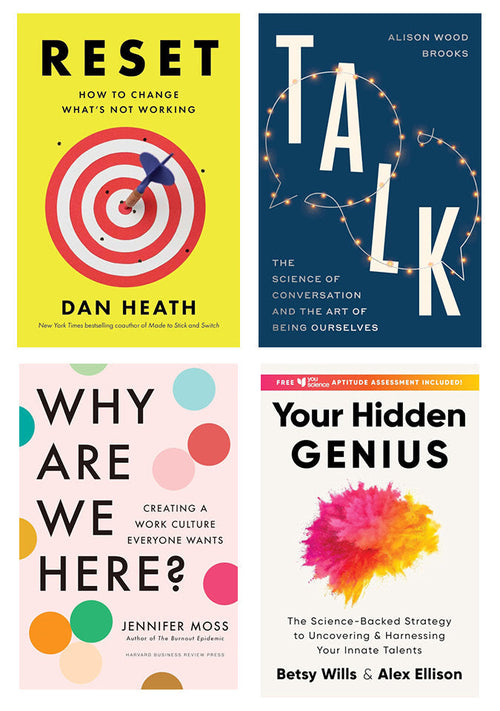
New Book Releases for the Week of January 21, 2025
Featuring new book releases from Dan Heath, Alison Wood Brooks, Jennifer Moss, and Betsy Wills and Alex Ellison.
-
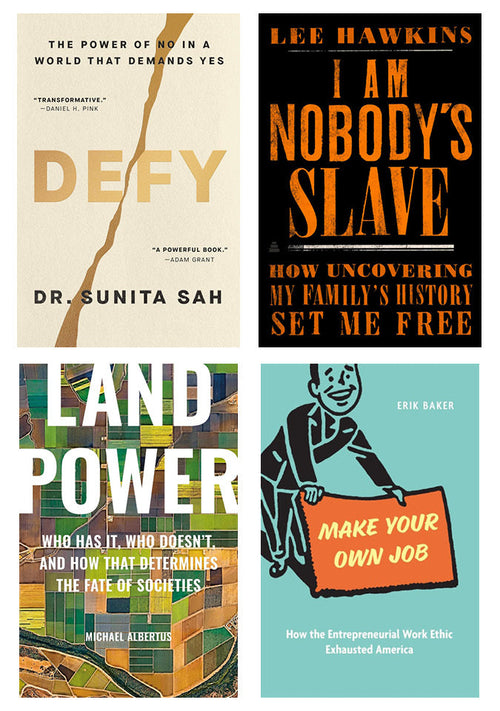
New Book Releases for the Week of January 14, 2025
Featuring new book releases from Dr. Sunita Sah, Lee Hawkins, Michael Albertus, and Erik Baker.
-
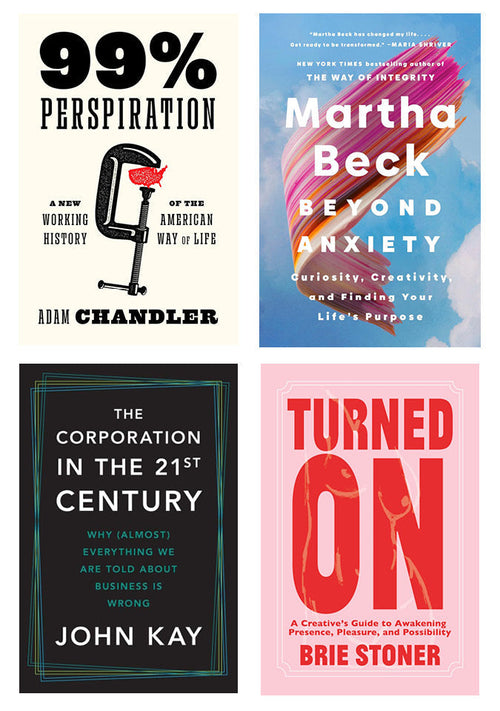
New Book Releases for the Week of January 7, 2025
Featuring new book releases from Adam Chandler, Martha Beck, John Kay, and Brie Stoner
-
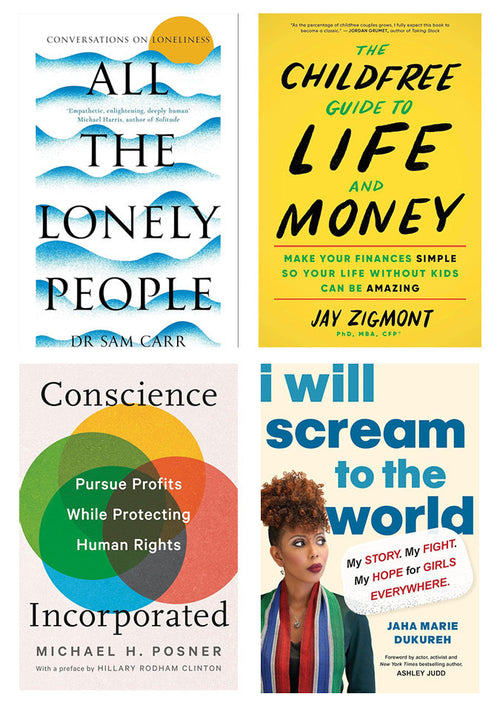
New Book Releases for December 17-31, 2024
Featuring new book releases from Sam Carr, Jay Zigmont, Michael H. Posner, and Jaha Marie Dukureh
-
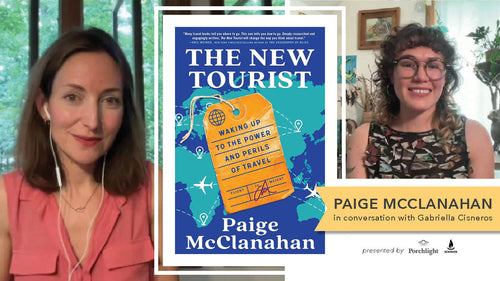
'The New Tourist': An Interview with Paige McClanahan
Watch our hour-long interview with Paige McClanahan on her book The New Tourist: Waking Up to the Power and Perils of Travel.
-
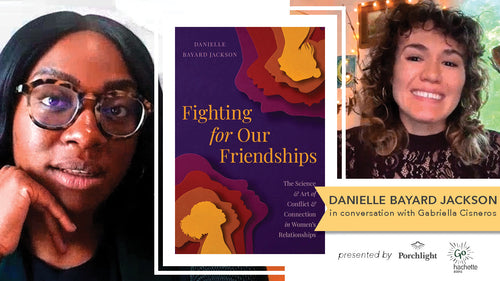
'Fighting for Our Friendships': An Interview with Danielle Bayard Jackson
Friendship coach and author Danielle Bayard Jackson offers insight into what makes women's friendships so important, so difficult, and so worth fighting for.
-

Upcoming Author Interview: Paige McClanahan – June 20, 2024
There are many gives and takes of tourism—we need to talk about them. And Paige McClanahan's book is an engaging and effective facilitator of that conversation.
-
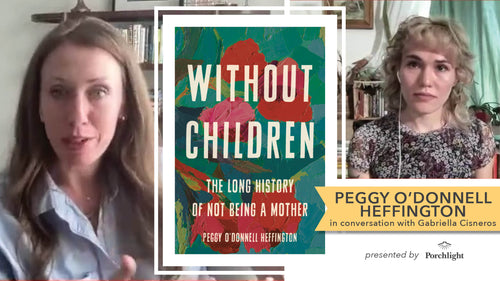
Peggy O'Donnell Heffington in Conversation with Gabriella Cisneros
Peggy O'Donnell Heffington discussed some of the main points from her new book Without Children: The Long History of Not Being a Mother in this previously live-streamed conversation with Porchlight's Creative Director Gabriella Cisneros.
-

Upcoming Live-Streamed Author Interview: Peggy O'Donnell Heffington
Register now for this upcoming live-streamed conversation with Instructional Professor of History Peggy O'Donnell Heffington.
-
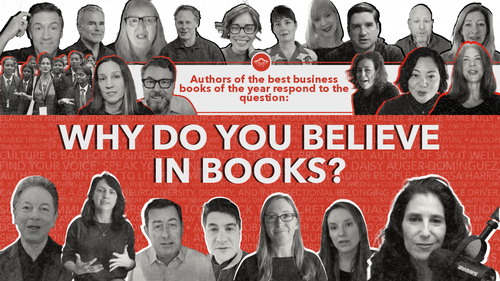
The authors of the best business books of 2024 respond to "Why do you believe in books?"
For the second year in a row, Porchlight asked the authors whose books we selected as the best business books of 2024 the question, "Why do you believe in books?" Their responses were thoughtful, sentimental, reflective, and forward-looking.
-
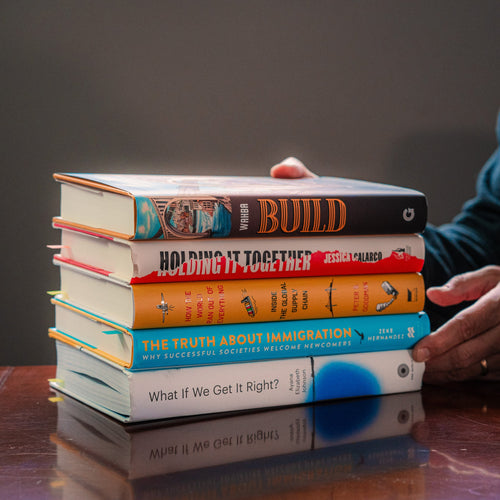
The Best Current Events & Public Affairs Books of 2024
The greatest challenges we face today offer some of our greatest opportunities for growth. We just need the civic imagination and collective will to seize them, to build new things and embrace new approaches. The best Current Events & Public Affairs books of 2024 all addressed that need in some way.
-
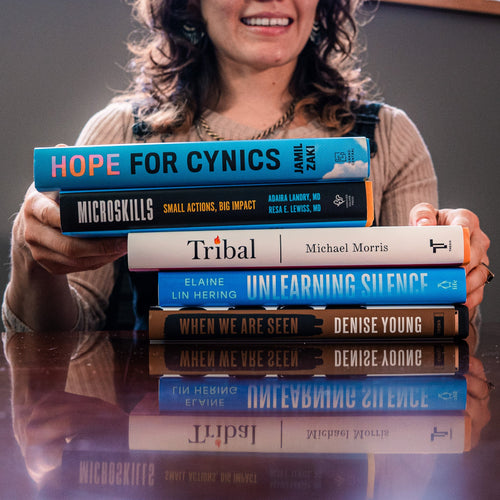
The Best Personal Development & Human Behavior Books of 2024
These books help us better understand and appreciate ourselves and one another, forcing us to take a step back and reflect on how we all need each other, not just to exist, but to succeed and flourish.
-
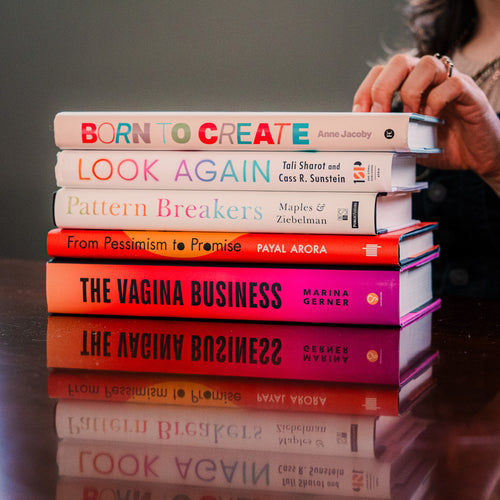
The Best Innovation & Creativity Books of 2024
With compelling voices, these books excite readers to investigate problems, acuminate ideas, and lead with an open-mind and the desire to change the world for the better.
-

The 2024 Porchlight Business Book Awards Longlist
The 40 books on this year's list of best business books provide a bastion against the tide of overwhelm that we all feel, grounding us with clear-eyed practical and practiced ways to do the work that will effectively bring positive change to our own personal and professional spaces and places.
-
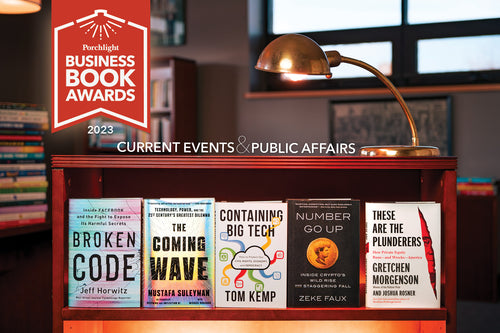
The 2023 Porchlight Business Book Awards | Current Events & Public Affairs
Looking for the year's best Current Events & Public Affairs books? Porchlight's Marketing & Editorial Director Dylan Schleicher has you, and those books, covered.
-
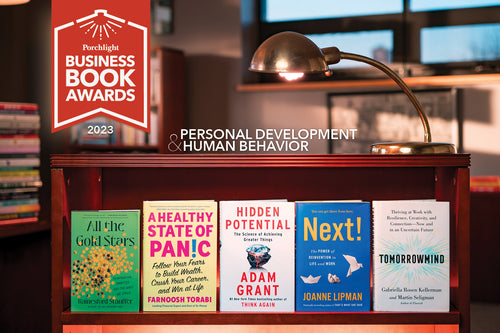
The 2023 Porchlight Business Book Awards | Personal Development & Human Behavior
None of these books are directly about happiness, but follow their advice and you'll feel a lot happier about where you are and where you're headed.
-
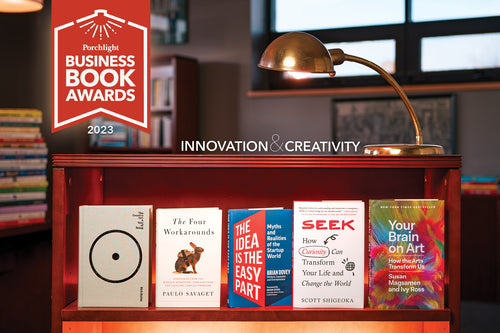
The 2023 Porchlight Business Book Awards | Innovation & Creativity
Our Creative Director Gabriella Cisneros describes how the best innovation and creativity books of 2023 connect to each other and help us readers connect to each other, too.
-
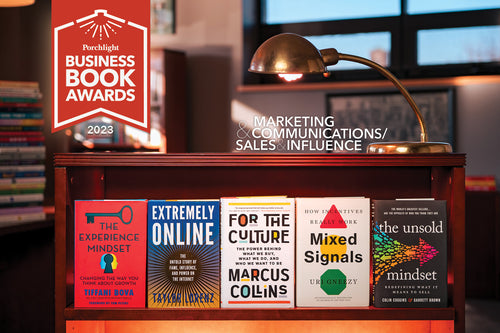
The 2023 Porchlight Business Book Awards | Marketing & Communications/Sales & Influence
Porchlight's Marketing & Editorial Director Dylan Schleicher looks at the year's best book in the Marketing & Communications/Sales & Influence category.
-
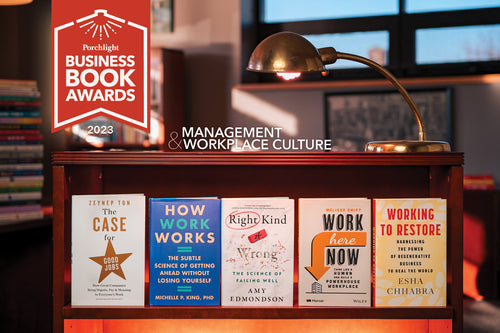
The 2023 Porchlight Business Book Awards | Management & Workplace Culture
Porchlight's Marketing & Editorial Director Dylan Schleicher takes us inside 2023's best Management & Workplace Culture books.
-
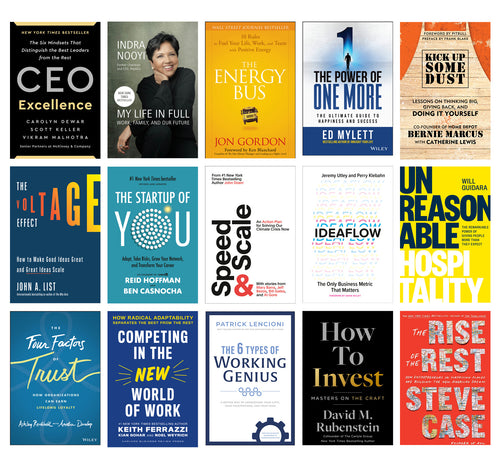
Porchlight Book Company's Bestselling Books of 2022
We love reading books, but our main purpose as a company is to get them in the hands of others.
-

The 2022 Porchlight Business Book Awards Shortlist
There isn’t anywhere better to slow down, to dive deeper into things, to learn about and reflect upon the world, than in a book. The best books transcend their time and space, even as they help us define our present moment and put it in context.
-
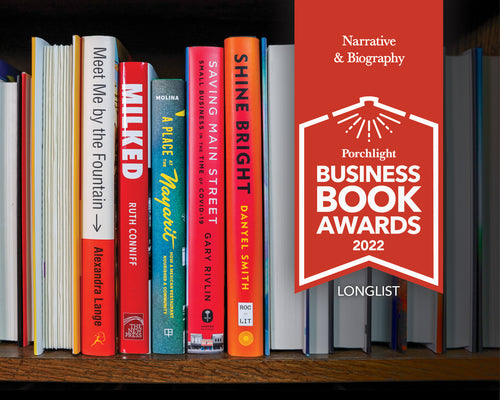
Inside the 2022 Longlist | Narrative & Biography
Like fiction, narratives and biographies can help us empathize with and even inhabit, for a brief moment in the pages of a book, the mindsets and experiences of other people. It allows us to peek into the lives of individuals, see inside organizations, and visit other places without having to leave our reading chair.
-
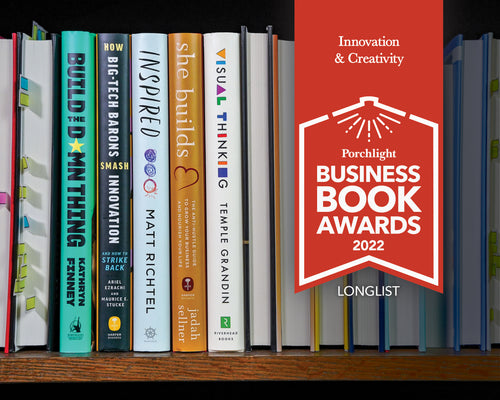
Inside the 2022 Longlist | Innovation & Creativity
These five books will prompt you to ask questions about yourself and the world around you, and it is in this inner-searching and outward observation that we will find, innovate, and create a better world for us all.
-
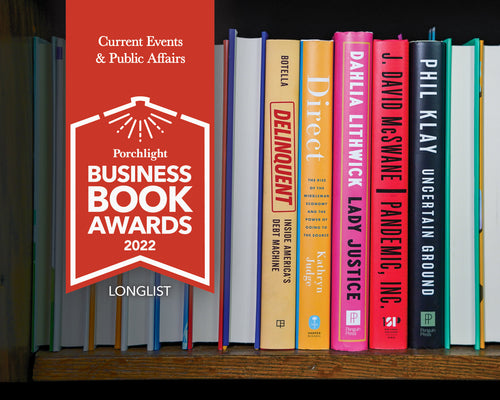
Inside the 2022 Longlist | Current Events & Public Affairs
It seems like each and every category of our awards has elements of Current Events & Public Affairs percolating within them, but that doesn't negate the need for a dedicated category. These are the five best books in that space this year.
-
America's Bank: The Epic Struggle to Create the Federal Reserve
Roger Lowenstein has written a brilliant book on the founding of the Federal Reserve that informs and echoes the issues and arguments of today.
-

The Air They Breathe: A Pediatrician on the Frontlines of Climate Change
A pediatrician reveals the profound impact of climate change on children's health and emphasizes our moral responsibility to safeguard our most vulnerable.
-
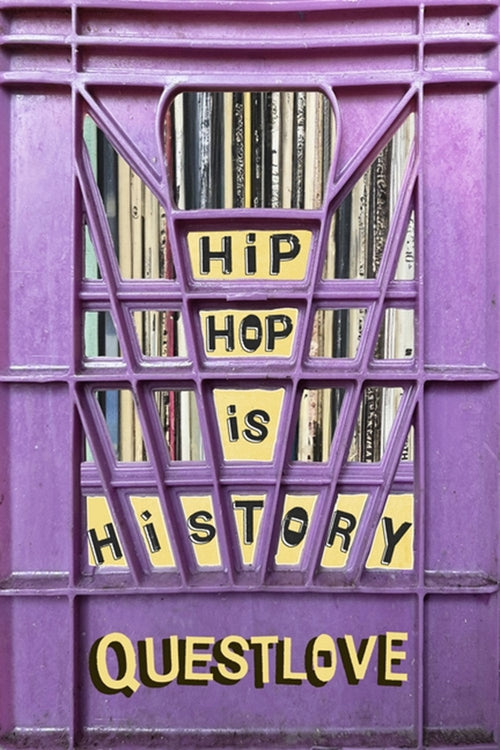
Hip-Hop Is History
2023 marked the 50th anniversary of hip-hop. Questlove helped tell that story at the 2023 Grammys, but that event is just the Introduction to the fuller, more personal history told in his new book on the topic.
-

The Ancient Art of Thinking for Yourself: The Power of Rhetoric in Polarized Times
Robin Reames has written a powerful guide to parsing political rhetoric that looks at how experiments in self-governance have been ended in the past and offers tools for thinking that can help us preserve our own.
-
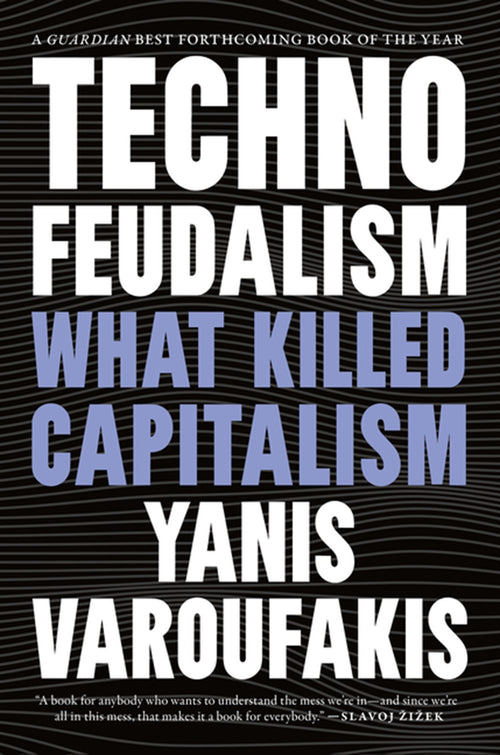
Technofeudalism: What Killed Capitalism
Yanis Varoufakis has pronounced capitalism dead. Even if you don’t believe it is worth saving, you’ll probably agree that what has replaced it is even more oppressive. But there may be a means for emancipation in the tools of our current exploitation.
-
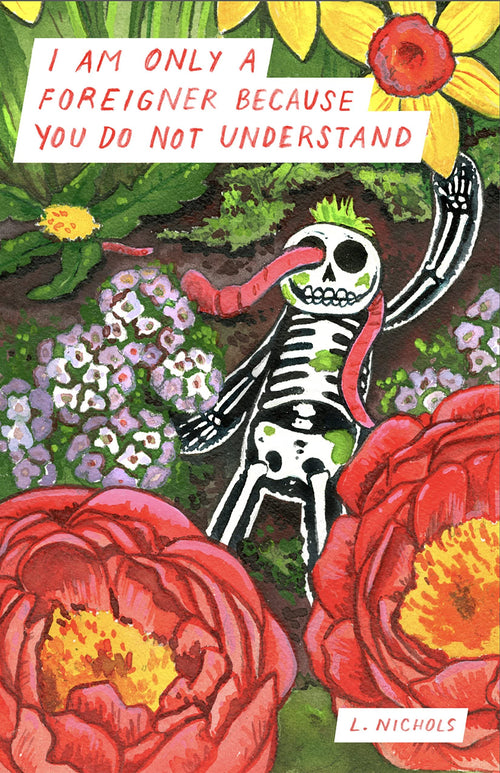
I Am Only a Foreigner Because You Do Not Understand
Despite the book's theme of being misunderstood, I find the sparse text of this graphic novel to make the author's feelings very understandable.
-

The World Behind the World: Consciousness, Free Will, and the Limits of Science
Furthering our understanding of existential issues like human consciousness and free will is increasingly relevant to decisions we make about the existential problems we face. Erik Hoel's new book is a gift that helps us do just that.
-
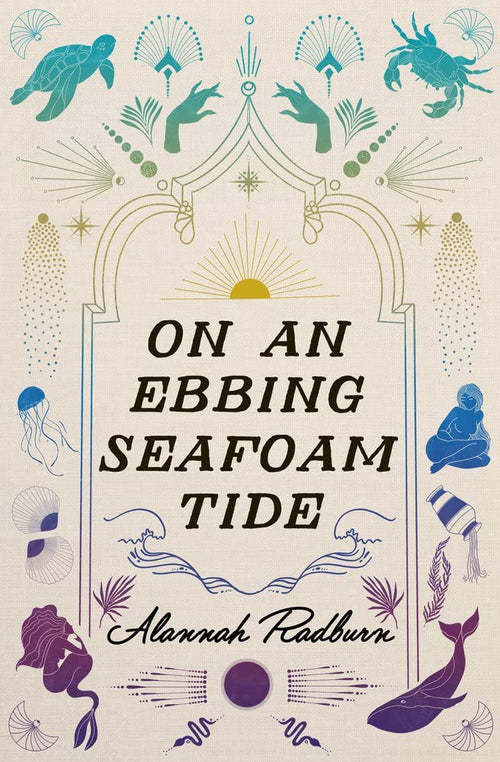
On an Ebbing Seafoam Tide
Alannah Radburn unabashedly shares pieces of herself that others might hide from strangers but that we should be more open about: the overly arduous fight for justice that women endure, the strength it takes to leave a bad relationship, a queer love story without stigma.
-

Laughter in the Dark: Egypt to the Tune of Change
Yasmine El Rashidi gives us an update on the situation in Egypt through the lens of the country's hip hop scene.
-
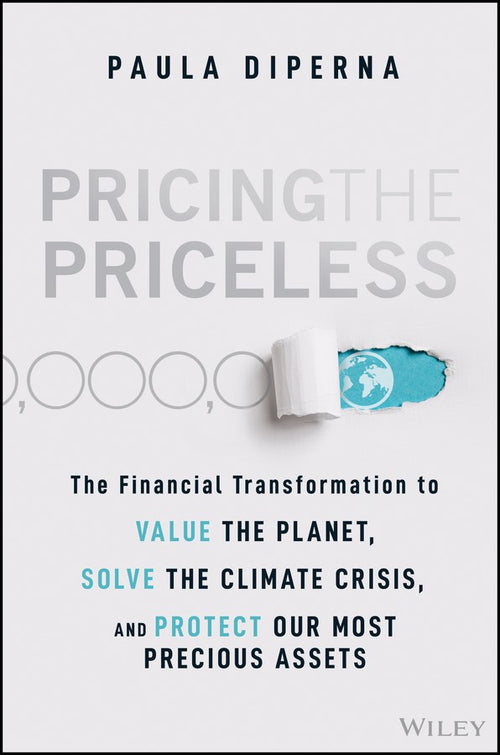
Pricing the Priceless: The Financial Transformation to Value the Planet, Solve the Climate Crisis, and Protect Our Most Precious Assets
Paula DiPerna writes beautifully about the moral bankruptcy of how value is assigned in our society, and of the sensible, sustainable ways we can flip the script to repair our economics and environment.
-
All the Gold Stars: Reimagining Ambition and the Ways We Strive
Rainesford Stauffer reminds us that it is not enough to be ambitious, and just how harmful personal ambition can be. The question is: what are we ambitious about?
-

The Song of Significance: A New Manifesto for Teams
"Let's get real or let's not play." Seth Godin's new manifesto for teams is about working well, leading well, and playing well with others.
-
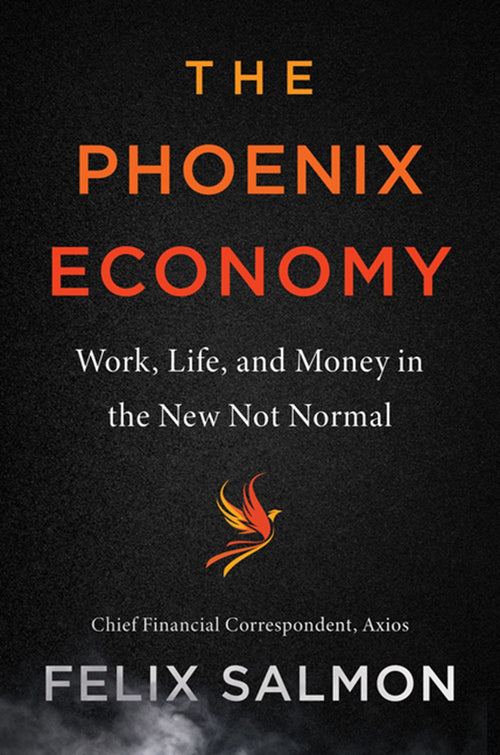
The Phoenix Economy: Work, Life, and Money in the New Not Normal
"The idea behind this book," writes Felix Salmon, "is that the unexpected isn’t over." A pronouncement like that offers both great hope and caution, and acts as an important reminder.
